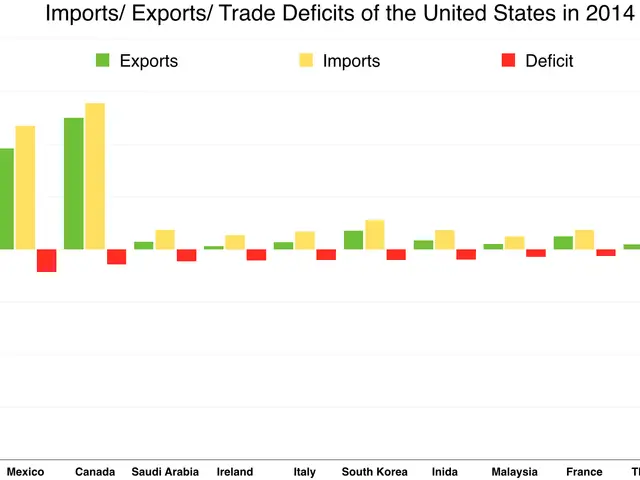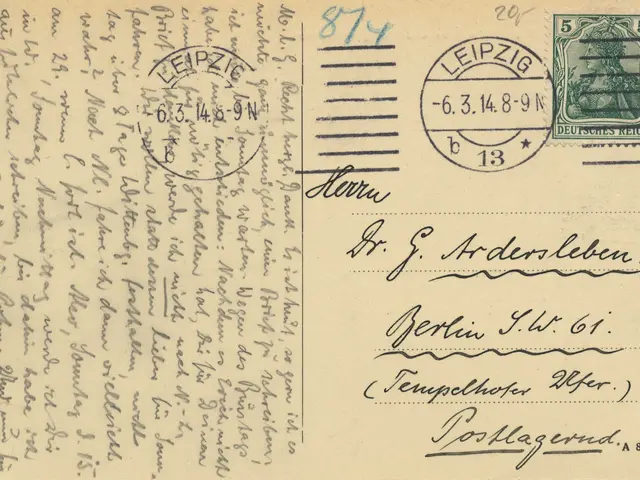In light of a potential emergency situation, experts ponder the enactment of border restrictions. This discussion follows the unsettling event in Solingen, sparking deliberations among politicians and specialists about the strengthening of immigration regulations. Union faction leader Friedrich Merz, as CDU chairperson, holds conversations with Federal Chancellor Olaf Scholz (SPD). Merz proposes several measures, including the possibility of Germany declaring a national emergency to enforce border control due to the collapse of the Dublin Regulation, a system reportedly in disarray.
Theoretically, the Dublin Regulation dictates that asylum applications in Europe must be filed in the initial entry country. However, in practice, this concept has allegedly faltered, with only a select few – such as airline passengers – able to enter Germany. Proponents of this proposal, including legal experts and migration scholars, do not discount its feasibility.
Merz alludes to the Treaty on the Functioning of the EU, implying that Germany may declare a national emergency in instances where border repatriations cannot occur due to European legal constraints and European-level resolutions are unattainable. Paul Kirchhof, a former judge at the Federal Constitutional Court and constitutional law expert, suggests that Merz might have referenced Article 78 of the EU Treaty, which discusses the possibility of "temporary measures" for member states experiencing a crisis due to a sudden influx of third-country nationals.
This suggests that Germany may opt for independent action if the situation demands it. While this approach might be extreme, it could be a pragmatic, albeit temporary, solution. Germany could subsequently reduce refugee numbers and exert more pressure on the EU to establish a functional distribution system.
Daniel Thym, an EU law specialist at the University of Konstanz, acknowledges the existence of Article 72 of the EU Treaty, which grants EU member states authorization "for the upkeep of public order and the defense of internal security." Departures from EU regulations can be permitted, asserts Thym, but are subject to the European Court of Justice.
Previous attempts have proven unsuccessful, however, with substantial risks associated with this approach.
The CDU also argues that European law supports border repatriations, a notion often disputed. To clarify this situation, the Christian Democrats have long advocated for modifications in European regulations. According to the CDU, the present security scenario in Germany and Europe has deteriorated, and the EU asylum regulations are contingent upon the preservation of public order and internal security.
In an attempt to halt asylum applications from Syria and Afghanistan, the CDU also proposes expelling Syrian and Afghan refugees subject to expulsion and a moratorium on asylum applications from these countries. Merz discounts arguments suggesting that legal restrictions might bar the CDU's proposals, stating, "What is not allowed, is no longer acceptable to the public."
Thym suspects that the CDU's strategy centers around the belief that closing Germany's borders could precipitate a chain reaction, potentially prompting a temporary decline in irregular migration, even if the border cannot be completely sealed or courts exhibit resistance.
Ruud Koopmans, head of the Migration Department at the Wissenschaftszentrum Berlin, posits that "no one who enters Germany irregularly requires protection" and that numerous individuals truly in need of protection will never reach Germany. Koopmans deems declaring a national emergency regarding migration as "a viable alternative," citing similar intentions in neighboring countries such as the Netherlands, where the newly appointed right-wing administration is developing a corresponding EU-level initiative, utilizing housing scarcity as an argument.
The Commission should carefully consider the CDU's proposal to declare a national emergency, as it could carry significant implications for EU law and border control. In light of the CDU's assertions that European law allows for border repatriations and the current state of the Dublin Regulation, The Commission may need to reassess its stance on immigration regulations.








